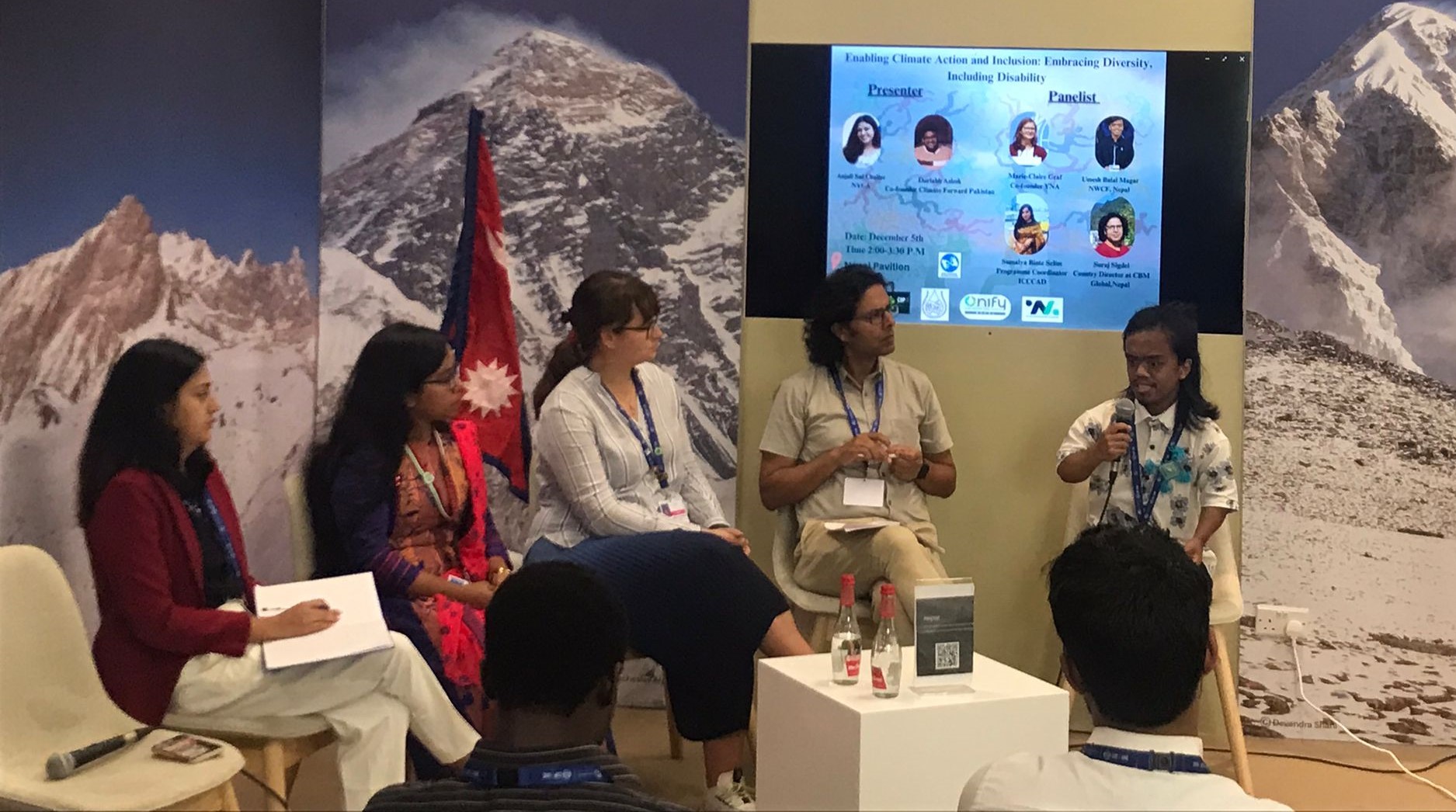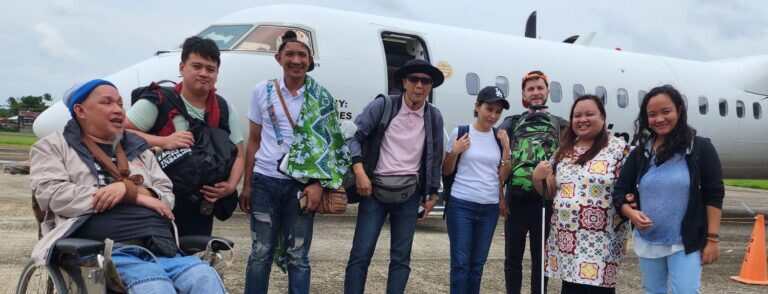CBM Global Humanitarian Mandate
CBM Global’s main humanitarian goal is to support and facilitate locally driven people-centred, timely, appropriate and effective humanitarian assistance to some of the poorest and most at-risk men, women and children affected by natural and human-caused disasters. This support is delivered in partnership with Organisations of Persons with Disabilities (OPDs) and in close coordination with the humanitarian sector at global, regional, national and local levels.
In doing so we commit to render humanitarian action inclusive by:
- Lifting the barriers people with disabilities face when accessing relief, protection and recovery support.
- Ensuring the meaningful participation of people with disabilities in humanitarian decision making and throughout the development, planning, implementation and evaluation of humanitarian programmes.
- Empowering people with disabilities and supporting them to build their capacities.
- Supporting mainstream actors through technical assistance.
How we work
At a global level
We co-chair the Reference Group on Inclusion of Persons with Disabilities in Humanitarian Action together with UNICEF and the International Disability Alliance (IDA). Through this role we support international efforts in raising awareness on the importance of disability inclusion in humanitarian action, fostering collaboration and coordination between OPDs, mainstream humanitarian actors and UN entities, and supporting the development and promotion of new practical tools, guidance and policies for disability inclusive programming.
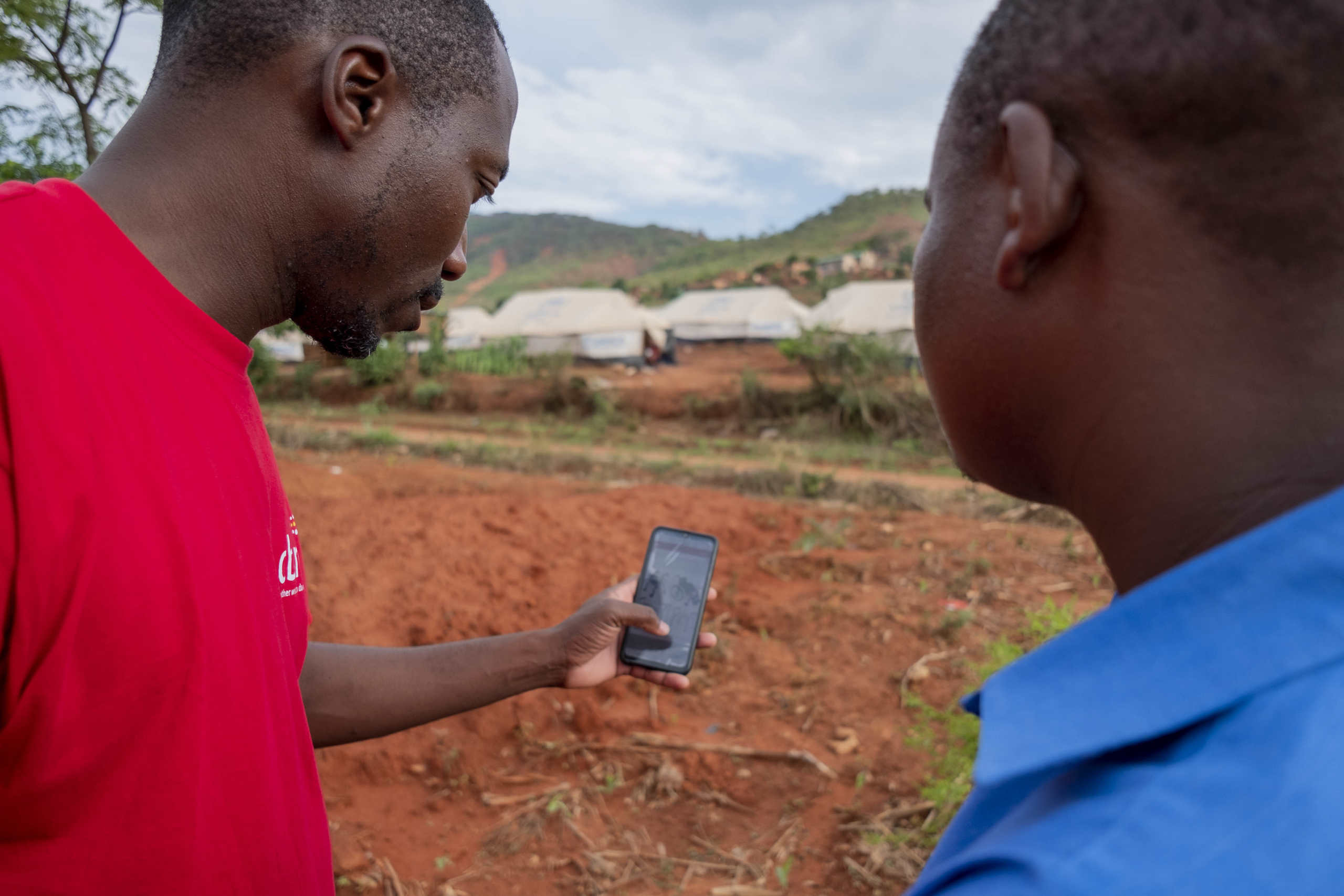
We are also a member of the Humanitarian Standard Partnership, promoting the Humanitarian Inclusion Standards alongside HelpAge International.

We bring our expertise to influence and support the work of Global Humanitarian Clusters (e.g., Shelter Cluster Disability Working Group and Protection Cluster Cash Working Group) and Networks and Communities of Practice (e.g. CaLP).
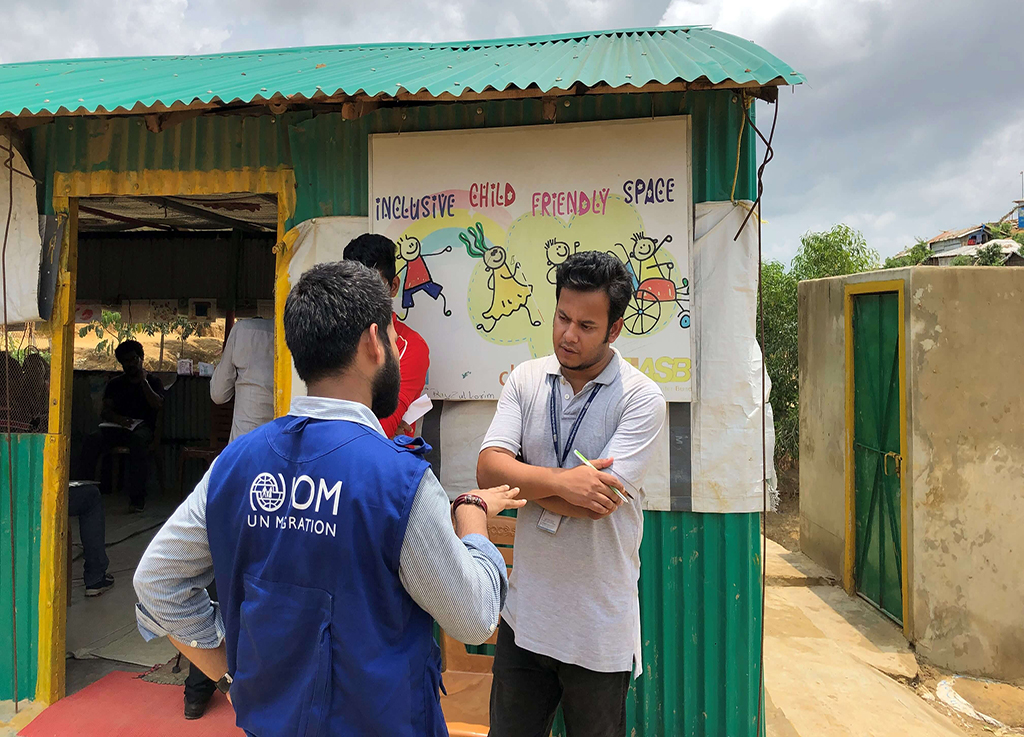
We develop and nurture strategic global humanitarian partnerships with UN entities (e.g., International Organization for Migration (IOM), UNICEF, World Food Programme (WFP), the disability movement (e.g., International Development Association (IDA), World Blind Union (WBU), European Disability Forum (EDF)) and mainstream organisations (e.g., HelpAge, International Rescue Committee (IRC), Elrha).
At a country level
CBM Global is fully committed to the localisation of aid. Our programmes are always implemented through national and local actors, alongside the disability movement. Services are focused on the following three main programme areas:
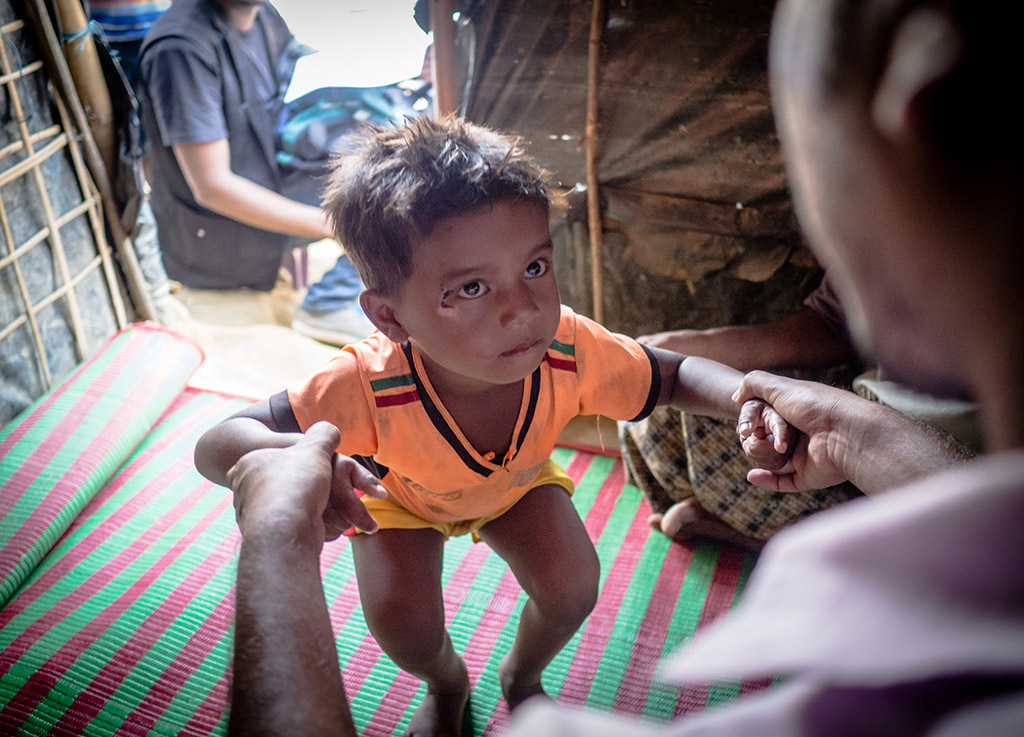
Inclusive health
Our services include, among others:
- Rehabilitation to people with injuries
- Provision of assistive devices
- Delivery of inclusive primary health services
- Support of referral to tertiary hospitals for surgery
- Promotion of mental health and psychosocial wellbeing
- Support to access essential medicines
- Capacity building of partners
- Support in developing mid and long-term community-based rehabilitation services.
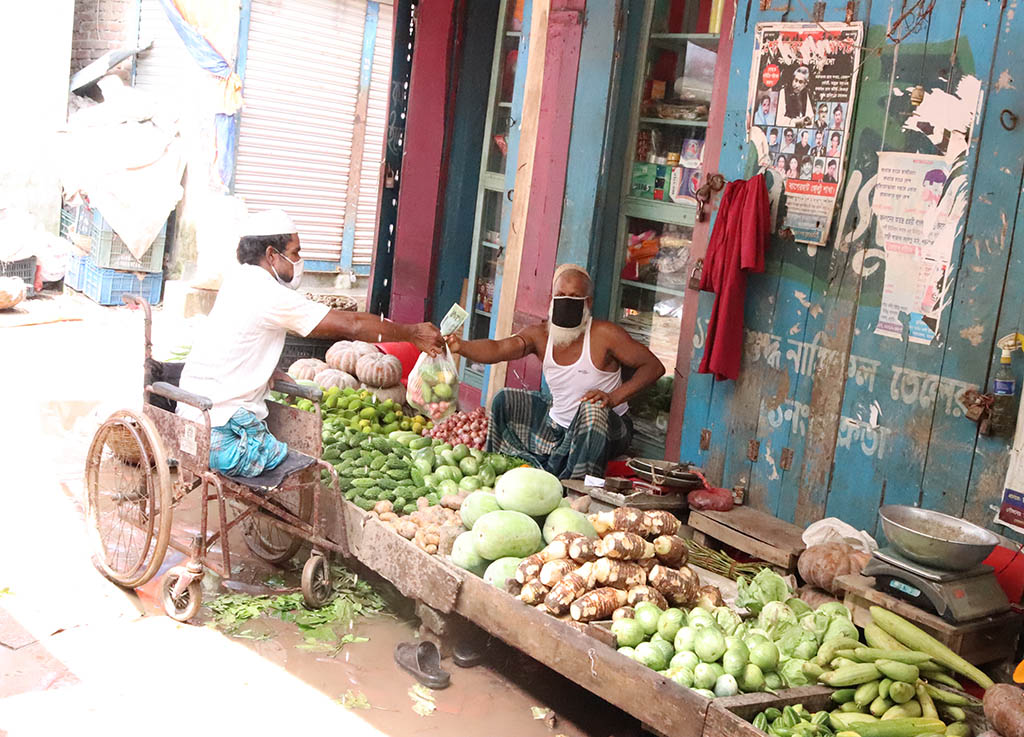
Inclusive basic needs assistance
Our services focus on:
- Food provision, non-food Items, WASH and livelihood services accessible to people with disabilities through:
- ensuring physical accessibility to service location and infrastructures
- ensuring appropriate and diversified communication/ information means are used
- enhancing partnership and support from OPDs to service providers.
- Building capacity of providers in making their services inclusive through:
- awareness raising and provision of technical support
- supporting definition of beneficiaries’ identification criteria
- supporting identification of people with disabilities and other at-risk groups for referral.
- Supporting inclusive child-friendly spaces.
- Supporting local economy through local purchasing and inclusive cash-based interventions.
- Supporting the recovery of inclusive livelihoods.
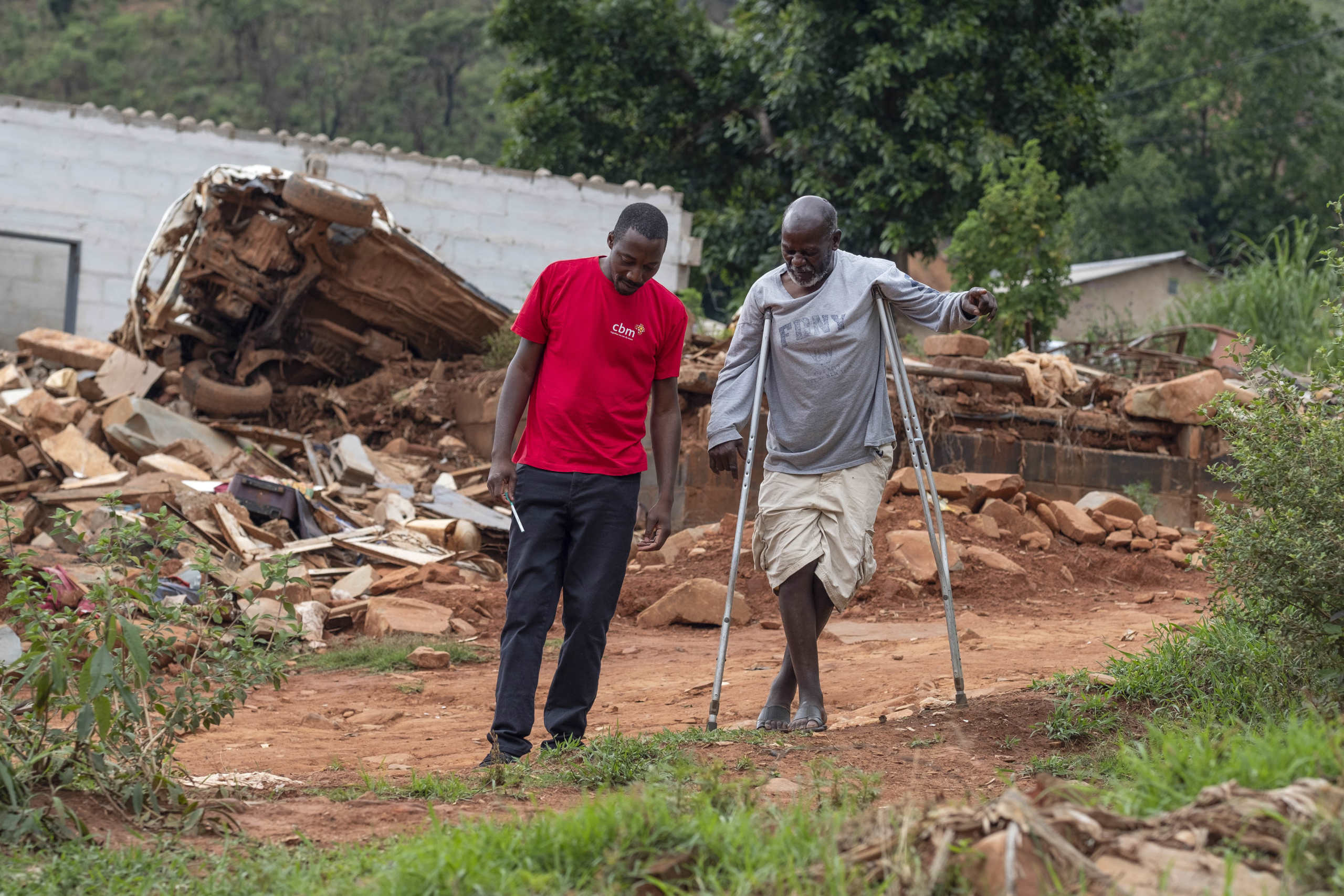
Disability inclusion technical advisory in crisis situations
Recognising that CBM Global programmes alone cannot achieve inclusion of all people with disabilities affected by humanitarian crises. Greater impact could be achieved through collaboration with mainstream humanitarian actors and peer organisations. CBM Global has progressively expanded on provision of external advise and technical assistance to the humanitarian sector. Our external advisory work seeks to harness the resources (including budgets, expertise, networks and program scale) of others towards disability inclusive humanitarian action, thereby expanding CBM Global’s reach and promoting more equal access to aid.
CBM Global International Humanitarian commitments
CBM Global humanitarian work is committed to and guided by the principles stated in the following international documents:
- The Convention of the Rights of Persons with Disabilities (UNCRPD- Article 11)
- The Humanitarian Charter
- The Humanitarian Disability Charter
- Humanitarian Charter and IFRC Code of Conduct
- Core Humanitarian Standard (CHS)
- Humanitarian inclusion standards for older people and people with disabilities (HIS)
- IASC Guidelines on Inclusion of Persons with Disabilities in Humanitarian Action

